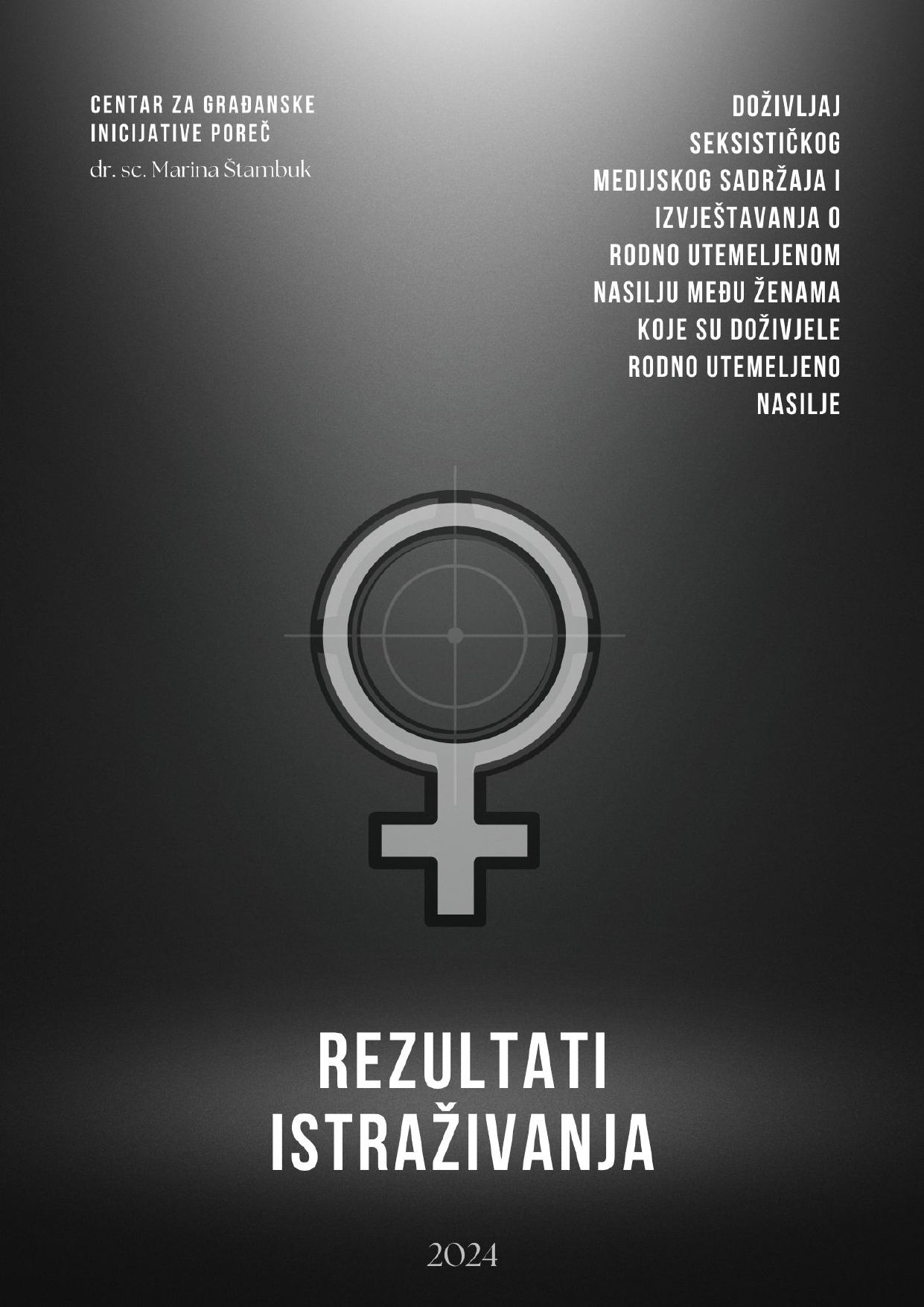
The Center for Civic Initiatives Poreč (CGI), in collaboration with Dr. Marina Štambuk, conducted research on the perception of sexist media content and reporting on gender-based violence among women who have experienced gender-based violence. The results are alarming: inappropriate media reporting leads to lower willingness to report violence and seek help, according to CGI.
The research revealed that participants—women who are victims of gender-based violence—believe that inappropriate reporting deepens fear, distrust, and hopelessness, creating additional barriers to seeking help and reporting violence among women currently experiencing or who have experienced violence. They evaluate gender-based violence as sensationalized and oversimplified, with a focus on stereotypical portrayals and victim-blaming, neglecting privacy and justifying perpetrators, as well as taking statements from irrelevant sources. They also noted that such portrayal of victims and perpetrators, and gender-based violence in general, contributes to a distorted public image of these issues.
The research highlighted numerous harmful effects of unethical media reporting on victims. Participants had similarly negative reactions when exposed to sexist media content and articles about gender-based violence. They expressed a high level of distress as a reaction to such media content, with dominant feelings including sadness, disgust, fear, anger, and outrage. For some, these feelings led to a sense of helplessness, while others were motivated to engage, connect with other women, and seek change.
Most participants described negative changes in attitudes and behavior, a heightened sense of personal insecurity, and reduced willingness to report violence and seek help. They felt that empathy towards victims and understanding of the dynamics of violence are rare, while misunderstanding of victims, difficulties in reporting violence, victim-blaming, and simplifying violence are common in public attitudes. This is attributed to frequent exposure to sensationalist portrayals of violence in the media, the research showed.
Despite the negative effects, women who have experienced gender-based violence closely follow media reports on the topic, often due to personal experience and identification with victims. They are particularly affected by comments on social media under news articles, which they feel compelled to read despite causing frustration and anger. They emphasize how difficult it is to limit time spent reading comments, often feeling overwhelmed by negative opinions and inappropriate reactions. Some participants say their need to follow these topics has become almost obsessive, while others occasionally decide to limit exposure to protect their mental health, CGI notes.
Sexist and stereotypical portrayals of women in the media contribute to the normalization of violence and further stigmatization of victims. The research also showed that frequent exposure to trivializing violence, romanticizing femicide, and depicting victims as fatalistic or responsible for the violence they have experienced reduces natural reactions of distress and empathy for victims. At the same time, perpetrators are often portrayed as respectable members of society, contributing to disbelief that they have committed violent acts. Participants who have experienced more violence had stronger and more negative reactions to such media content.
The research results clearly indicate the need for more ethical and responsible media reporting on gender-based violence and on women in general.
Sensationalist, sexist, and inappropriate media content deepens feelings of fear, distrust, and hopelessness among victims, reducing their willingness to report violence and seek help. It is essential to raise awareness about the consequences of such reporting and encourage media to present these issues with more empathy and understanding towards victims, CGI states, including several quotes from participants: “A woman is always to blame, whether she is guilty or not,” “The focus is not on the act of violence, but on how she contributed to it happening,” “Every time I get upset about every instance of violence in the media. I can’t get it out of my head and I relive it every time,” “Fatal, attractive” vs. “Entrepreneur, minister, exemplary believer, father of two children,” “It’s made to be unbelievable that he could be a perpetrator at all,” “Neighbors said they were a wonderful family.”
The full research is available HERE.
The research was conducted as part of the “Sexism Our Everyday” project by the Center for Civic Initiatives Poreč, supported by the Solidarna Foundation through the Women’s Fund as part of the Program Support for CSOs.
Additionally, CGI conducted an analysis of the work of the Council for Electronic Media in the area of discrimination based on sex, gender identity, and sexual orientation. The analysis highlights a number of serious deficiencies in handling complaints about discrimination in the media. The lack of transparency, ambiguity in interpreting the law, and absence of sanctions for discriminatory content create an environment that potentially supports and normalizes such reporting. The Council’s failure to consistently address violations negatively impacts victims of violence and discrimination and sends the wrong signals to the media, according to the Center for Civic Initiatives Poreč.
The analysis is available HERE.